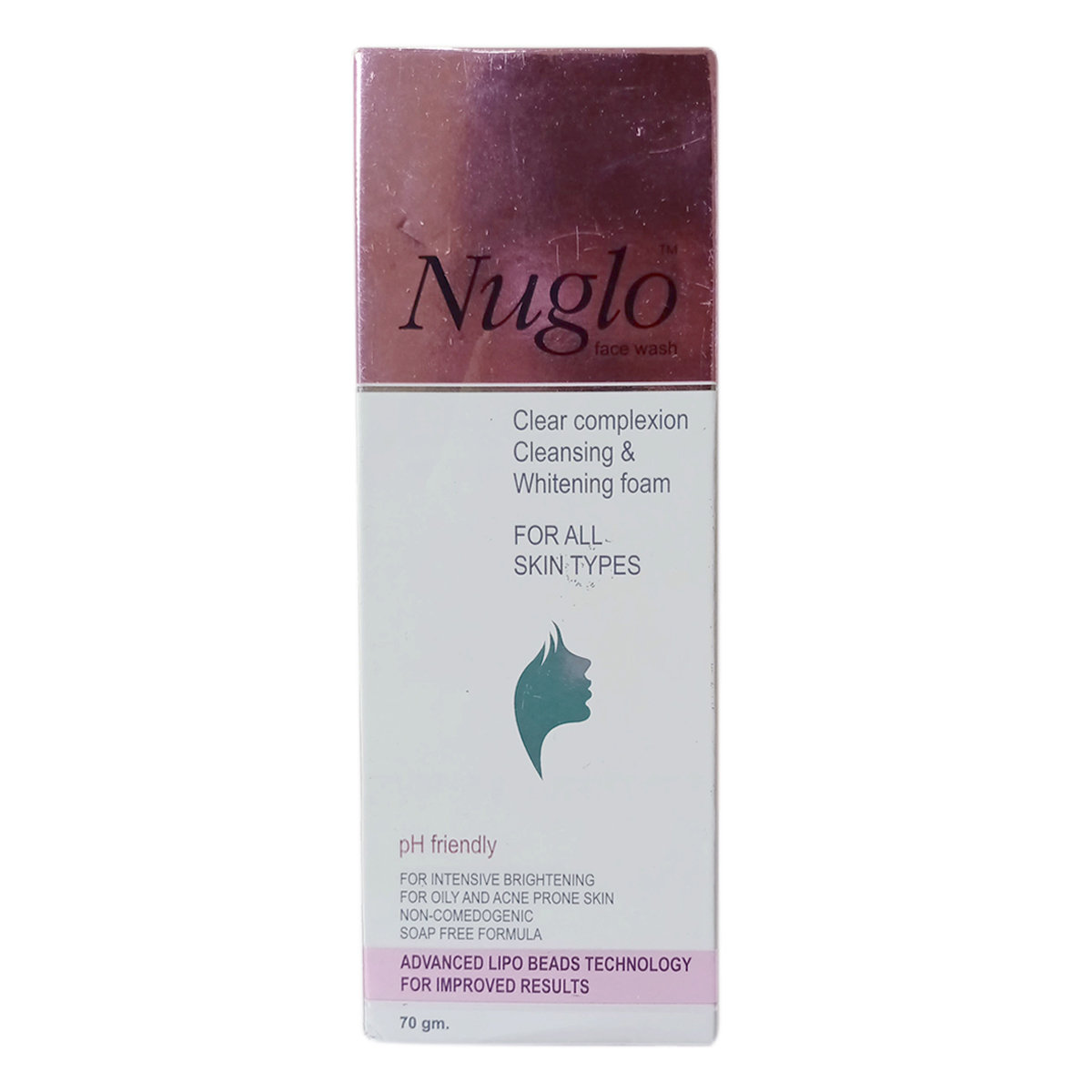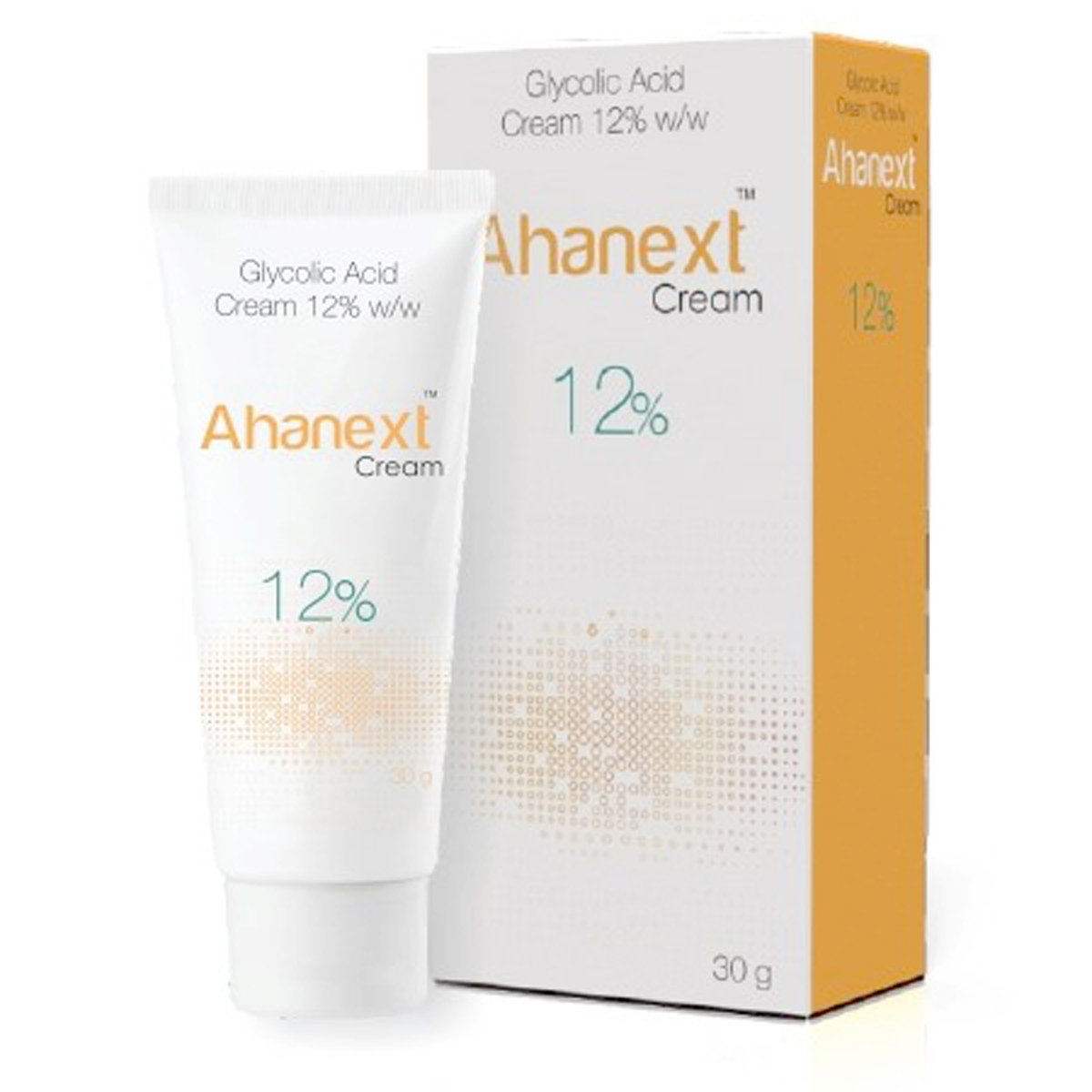Glycolic Acid
About Glycolic Acid
Glycolic Acid is used to treat skin problems such as acne (pimples), acne scars, melasma, hyperpigmentation, fine lines, wrinkles, and photoaging (premature skin ageing caused by repeated UV exposure). It is often used to improve skin texture and tone.
Glycolic Acid contains Glycolic Acid, which is an alpha-hydroxy acid (AHA). It works by increasing the turnover rate of skin cells, promoting gentle exfoliation (peeling of the outer layer), helping to clear blocked pores (comedones), and improving overall skin appearance. This helps reduce acne breakouts and fade pigmentation marks over time.
Glycolic Acid is for external use only. Avoid contact with eyes, eyelids, lips, mouth, and nose. If accidental contact occurs, rinse the affected area thoroughly with water. Always follow your doctor’s or pharmacist’s instructions on how much and how often to apply Glycolic Acid. Common side effects of Glycolic Acid may include dry skin, redness (erythema), mild burning or stinging sensation, itching, irritation, and rash. These effects are usually temporary and improve as your skin adjusts to the treatment. However, stop using it and consult your doctor if you experience severe irritation, persistent redness, or an allergic reaction.
Glycolic Acid can make your skin more sensitive to sunlight. Always apply sunscreen during the day and wear protective clothing when outdoors. Avoid using other potentially irritating products on treated areas (such as alcohol-based astringents, strong soaps, hair removal creams, or products with fragrances or spices) unless advised by your doctor.
Uses of Glycolic Acid
Medicinal Benefits
Glycolic Acid contains Glycolic acid, which is a powerful skincare ingredient with multiple proven benefits. It helps treat acne by unclogging pores, removing dead skin cells, controlling excess oil, and preventing new breakouts. By promoting skin cell turnover, it fades acne scars and improves overall skin texture. Glycolic acid also lightens hyperpigmentation, such as dark spots and melasma, for a more even skin tone. It stimulates collagen production, helping to reduce fine lines, wrinkles, and other visible signs of ageing. Additionally, it improves sun-damaged (photoaged) skin by reducing pigmentation and improving its texture. With its keratolytic properties, it softens and removes thickened or rough skin, while its comedolytic action prevents the formation of blackheads and whiteheads. Glycolic acid also offers mild antibacterial and anti-inflammatory effects, supporting clearer, healthier skin.
Directions for Use
- Glycolic Acid is for external use only.
- Use it according to the instructions on the label or as directed by your doctor.
- Apply the recommended amount of Glycolic Acid to the affected areas of the skin. Gently massage the medicine into the skin with your fingers.
- Wash your hands before and after applying the medicine.
- If Glycolic Acid accidentally comes into contact with the nose, mouth, or eyes, rinse thoroughly with water.
Storage
Side Effects of Glycolic Acid
- Burning sensation
- Itching
- Skin irritation
- Swelling
- Skin rash
Drug Warnings
Do not use Glycolic Acid if you are allergic to any of its ingredients. Inform your doctor if you have a history of contact dermatitis or any other medical conditions. Please inform your doctor about all other medications or vitamins you are currently taking. Glycolic Acid can make your skin more sensitive to sunlight, so always use sunscreen and wear protective clothing outside. Avoid tanning booths and sunlamps. Don’t apply Glycolic Acid to irritated or sunburned skin. Be cautious when using it on sensitive areas, such as the face and neck. Talk to your doctor if you are pregnant, planning to become pregnant, or breastfeeding.
Drug Interactions
Drug-Drug Interaction: No interaction found.
Drug-Food Interaction: No interaction found.
Drug-Disease Interaction: No interaction found.
Drug-Drug Interactions Checker List:
Safety Advice

Alcohol
cautionNo interactions found or established.

Pregnancy
consult your doctorIf you are pregnant or planning to become pregnant, talk to your doctor before using Glycolic Acid. Although topical products like Glycolic Acid generally have low absorption into the bloodstream, some ingredients may not be recommended during pregnancy. Your doctor can help decide if it is safe for you and suggest alternatives if needed. It’s always best to follow medical advice to ensure the safety of both you and your baby.

Breast Feeding
consult your doctorIf you are breastfeeding, it’s essential to consult your doctor before using Glycolic Acid. Topical products like Glycolic Acid are generally considered low risk because they are not significantly absorbed into the bloodstream. However, avoid applying it directly to or near the nipple area to prevent your baby from accidentally ingesting it during feeding. If you need to use it on the chest, ensure the area is washed thoroughly before breastfeeding.

Driving
safeGlycolic Acid does not impact your ability to drive or operational skills.

Liver
cautionGlycolic Acid is applied to the skin and doesn’t usually enter the bloodstream in significant amounts, so it’s generally safe for people with liver disease. However, always consult your doctor to ensure it’s right for you.

Kidney
cautionGlycolic Acid is applied to the skin and doesn’t usually enter the bloodstream in significant amounts, so it’s generally safe for people with kidney disease. However, always consult your doctor to ensure it’s right for you.

Children
consult your doctorThere is limited research on the safety of Glycolic Acid in children. Always consult a doctor before using it to ensure it is appropriate and safe for your child’s skin.
Habit Forming
Diet & Lifestyle Advise
- Eat a balanced diet with plenty of fruits, vegetables, whole grains, lean proteins, and healthy fats to nourish your skin from within.
- Stay well-hydrated by drinking enough water to maintain healthy skin and overall well-being.
- Limit sugary and greasy foods to help prevent breakouts and maintain clearer skin.
- Apply sunscreen daily to protect your skin from harmful UV rays and prevent premature ageing.
- Wear protective clothing, such as hats and long sleeves, when outdoors to guard against sun damage.
- Get enough restful sleep to support skin repair and maintain a healthy, glowing complexion.
- Manage stress through exercise, meditation, or hobbies to help prevent stress-related skin issues.
- Avoid smoking and excessive alcohol to keep your skin looking youthful and reduce long-term damage.
Patients Concern
Disease/Condition Glossary
Acne vulgaris (acne): It is a skin condition caused when the hair follicles are plugged with oil and dead skin cells. Whiteheads, blackheads, pimples, cysts, and nodules are all types of acne. It commonly occurs in teenagers, although it affects all age groups.
Hyperpigmentation: It is a skin condition in which patches of skin become darker in colour than the normal surrounding skin. This darkening of skin occurs when an excess of melanin, the brown pigment that produces normal skin colour, forms deposits in the skin.
Melasma: Melasma is a common skin condition that causes dark, discoloured patches on the skin, most often on the face. It is sometimes called the “mask of pregnancy” when it occurs in pregnant women. Melasma can develop due to hormonal changes during pregnancy, sun exposure, or other hormonal influences, and it often requires consistent sun protection and targeted skincare treatments for management.
FAQs
Glycolic Acid contains Glycolic Acid, which is an alpha-hydroxy acid (AHA). It works by increasing the turnover rate of skin cells, promoting gentle exfoliation (peeling of the outer layer), helping to clear blocked pores (comedones), and improving overall skin appearance. This helps reduce acne breakouts and fade pigmentation marks over time.
Glycolic Acid is used to treat various skin problems, including acne (pimples), acne scars, melasma, hyperpigmentation, wrinkles, and photoaging (premature skin ageing caused by repeated exposure to UV radiation).
You should not stop using Glycolic Acid without consulting your doctor, even if your symptoms improve. Stopping treatment too soon may cause your condition to return or worsen. Always follow your healthcare provider’s instructions about how long to continue using the medication.
If you are breastfeeding, it is essential to talk to your doctor before using Glycolic Acid. Topical products like Glycolic Acid generally have minimal absorption into the bloodstream and are considered low risk when used as directed during breastfeeding. However, you should avoid applying Glycolic Acid directly to the breast or nipple area to prevent accidental ingestion by your baby during feeding. If application to the chest is necessary, ensure that the area is thoroughly washed before breastfeeding. Your doctor can help determine if Glycolic Acid is suitable for you while breastfeeding and provide guidance on its safe use to protect your baby. Always follow medical advice to ensure both your safety and your baby's well-being.
Glycolic Acid can make your skin more sensitive to the harmful effects of sunlight. Hence it is advised to use sunscreen and wear protective clothing while using Glycolic Acid. It is recommended to avoid tanning booths and sunlamps.
Glycolic Acid usually improves your skin condition in 4-6 weeks of treatment. If you notice no improvement after a month of treatment, please reach out to your doctor.
Leave glycolic acid on overnight only if your doctor or the product instructions say it’s safe. Some formulas are designed for overnight use, but others can irritate if left too long. Always follow the recommended application time to avoid redness or dryness.
Yes, Glycolic Acid is non-comedogenic. It does not clog pores.
Hyperpigmentation is a skin condition in which patches of skin become darker in colour than the normal surrounding skin. This darkening of skin occurs when an excess of melanin, the brown pigment that produces normal skin colour, forms deposits in the skin.
Acne is a skin condition caused when the hair follicles are plugged with oil and dead skin cells. It commonly occurs in teenagers, although it affects all age groups.
Using glycolic acid daily depends on the product type and your skin's tolerance. Use it as advised by the doctor.
Consult a doctor before using Glycolic Acid if you have a dark neck, as it may be due to various underlying reasons. The doctor will determine the cause of the dark neck and recommend appropriate medicine.
Common side effects of Glycolic Acid include dry skin, erythema (skin redness), burning sensation, itching, skin irritation, and skin rash. Most of these side effects do not require medical attention and will resolve gradually over time. However, consult your doctor if the side effects persist or worsen.
Glycolic Acid should be used for dark circles only if advised by the doctor. Caution is recommended while using Glycolic Acid on the eye area. Avoid contact with the eye; rinse thoroughly with water if contact occurs.
Other topical medications can be used in conjunction with Glycolic Acid if recommended by the doctor. Be cautious while using different active ingredients.
Though it is likely safe, it is advised to consult a doctor before using Glycolic Acid if you are pregnant or breastfeeding.
Glycolic Acid can make the skin more sensitive to sunlight; hence, always use sunscreen and protective clothing before stepping outdoors. Stop using Glycolic Acid and consult a doctor if you experience any adverse reactions while using it.
Store Glycolic Acid at room temperature, in a dry place. Keep it out of sight and reach of children.
Available Medicines for
Glycolic Acid

Ahaglow S Foaming Face Wash 100 ml | Salicylic Acid & Glycolic Acid
1 Bottle
₹806.9 (MRP 877)8%Off
cashback: 0









